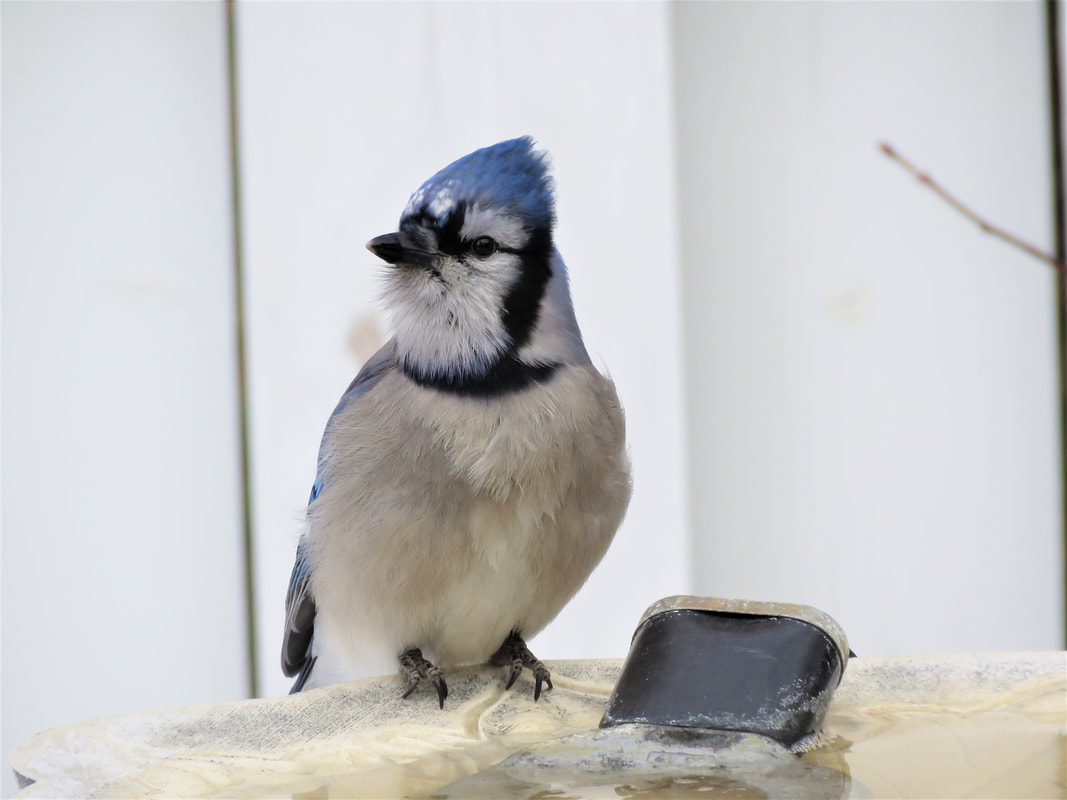I was chatting with Top Crop Two in Kimberley last month as they were getting their bird feeding supplies ready. They were saying the popularity of bird feeders skyrocketed last winter - it was a fun pandemic activity - and I expect it will be the same this winter.
The latest episode of the podcast "The Warblers" by Birds Canada, titled "Feeding birds the right way", has some great tips for bird feeding, especially about bird feeder hygiene. Andrés and Andrea interviewed Kerrie Wilcox, co-ordinator of Project Feederwatch for Birds Canada.
You can read about the podcast here:
https://www.birdscanada.org/coming-soon-the-warblers-podcast/
You should be able to find the podcast on whichever podcast app you use (I use Overcast) or by searching the internet.
About cleaning your feeders: Project Feederwatch says: "Birds can become ill from leftover bits of seeds and hulls that have become moldy or from droppings that have accumulated on feeder trays. Therefore, you should clean your seed feeders about once every two weeks, more often during times of heavy use or during warm and damp conditions. Research has found that scrubbing debris off feeders and then soaking them for 10 minutes in a diluted bleach solution is more effective at removing bacteria than using soap and water alone."
So, in choosing which type of feeder to use, consider ease of cleaning as well as what food for the birds in your area.
Project Feederwatch is a great resource for all things about feeders: feeder types, bird identification guides and photos. If you join for a minimum of $25 a year, you can contribute sightings at your feeder (there's an app for that) to help keep track of populations and interactions and whatever else science can tell us about birds. Consider giving a membership as a gift.
They have lots of info about all aspects of bird feeders at:
https://feederwatch.org/learn/feeding-birds/#feeder-types-2
Some bird feeding tips:
- keep your cats indoors; don't have birdfeeders if there are lots of free-roaming cats in your area
- clean your feeders by soaking in a diluted bleach solution
- use tube-type or small hopper-type feeders rather than the tray-type so birds can't sit and poop on the seeds they're going to eat - spreading disease
- also, rake and clear out fallen seeds on the ground OR
- place a table under the feeder to catch fallen seeds, then clean it regularly - again with a diluted bleach solution
- if you see any sick birds or hear reports of bird diseases going around, clean up your feeder area; you may have to bring in your feeders for a couple of weeks
- place feeders close to windows so birds startled off the feeder don't develop enough steam to hurt themselves if they fly into the window OR
- put your window screens on the OUTSIDE of the window OR
- install reflective decals, streamers, or a commercially available window film designed for this purpose - I save foil seals from yoghurt and coffee cans and tape them randomly on the inside of my windows but this should only be done on windows that don't get a lot of sun; you can trim them to look like snowflakes, if you wish.
- try the "ecological" approach for dealing with avian predators:
- the little hawks have to eat too but enough is enough around your feeder sometimes
- encourage species like Blue Jays who act as sentinels, calling the alarm when a Sharp-shinned Hawk or Merlin sneaks up
- situate your feeders and garden plantings to provide quick cover for the little birds.
- other mammals can be a problem too, even moose, apparently.
- around here, don't put up your feeders until the bears are asleep
- for squirrels, well, one of my favorite long-winter-night pastimes is watching videos of clever squirrels foiling bird feeder protections or going through backyard mazes to get their nuts. Our squirrels are usually asleep in the coldest times, which are also best for bird feeding, so good luck on warm days.
And don't forget, your feeder sightings are also important for our local Christmas Bird Counts - more on that soon! Happy Birding!
Dianne Cooper, Kimberley, BC

 RSS Feed
RSS Feed
